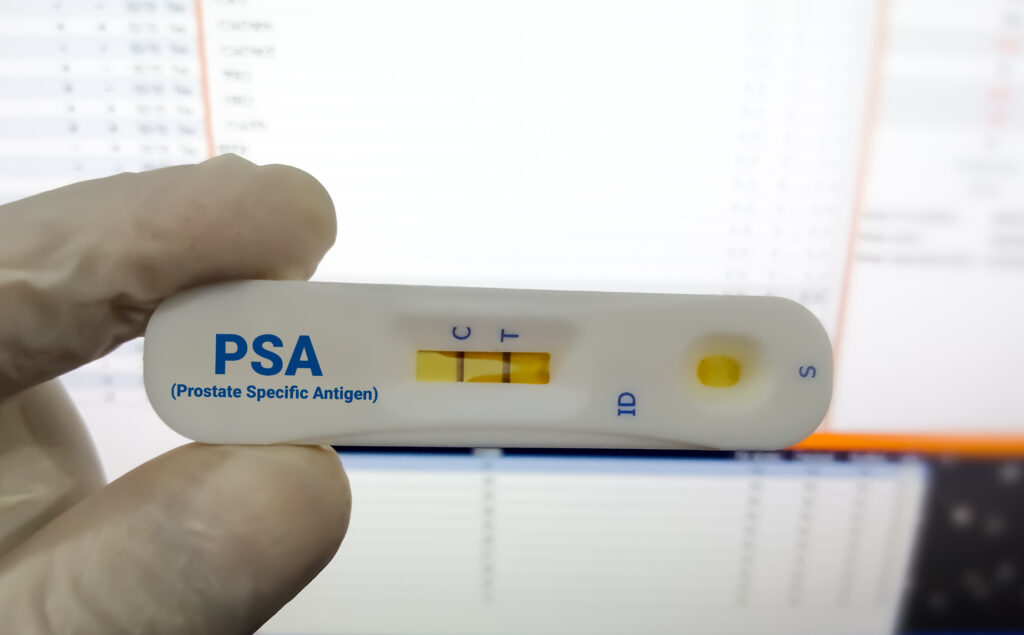
(HealthDay News) — For men with high-risk biochemically recurrent prostate cancer, olaparib monotherapy yields good prostate-specific antigen (PSA) response rates, especially among those with BRCA2, according to a study published online Aug. 22 in JAMA Oncology.
Catherine H. Marshall, M.D., from the Johns Hopkins University School of Medicine in Baltimore, and colleagues examined the activity of olaparib monotherapy among patients with high-risk biochemically recurrent prostate cancer after radical prostatectomy in a phase 2, single-arm nonrandomized controlled trial. A total of 51 male patients were enrolled and received treatment with olaparib twice daily until doubling of baseline PSA, clinical or radiographic progression, or unacceptable side effects.
The researchers found 13 participants (26 percent) had a 50 percent or higher decline in PSA from baseline (PSA50); all were within the homologous recombination repair-positive group (13 of 27; 48 percent). A PSA50 response occurred in all 11 participants with BRCA2 alterations. Fatigue, nausea, and leukopenia were common adverse events (63, 55, and 43 percent, respectively), which were consistent with known adverse effects of olaparib.
“Molecularly targeted therapies in select patient populations may be a reasonable treatment strategy for some patients with recurrent prostate cancer, even in the absence of androgen deprivation therapy,” the authors write.
Several authors disclosed ties to pharmaceutical companies, including AstraZeneca, which provided olaparib and financial support for the study.
What does this mean for men with prostate cancer?
This clinical trial is looking at a drug called olaparib from AstraZeneca to treat a type of prostate cancer called biochemically recurrent prostate cancer. This means the cancer has come back after surgery, even though there’s no evidence of it on scans.
How does olaparib work?
Olaparib is a type of drug that targets cancer cells. It works by stopping cancer cells from repairing themselves, which can lead to their death.
Who was in the study?
The study included men who had prostate cancer surgery and then experienced a recurrence. They had to have a certain level of a protein called PSA (prostate-specific antigen) in their blood.
What were the results of the trial?
Some men responded well: About half of the men with a specific genetic change called a BRCA2 alteration saw a significant decrease in their PSA levels. This suggests that olaparib might be effective for this group of patients.
Not everyone benefited: Men without the BRCA2 alteration didn’t see as much benefit from olaparib.
Side effects: The study also looked at the side effects of olaparib. Common side effects included fatigue, nausea, and low blood cell count.
The study shows that olaparib might be a promising treatment option for men with biochemically recurrent prostate cancer who have a BRCA2 alteration. However, more research is needed to confirm these findings and to understand how olaparib can be used most effectively in this setting.
What does this mean for Black men?
Black men are disproportionately affected by prostate cancer, and clinical trials like this can help address this disparity. By participating, they contribute to research that can lead to new treatments and improved outcomes. Clinical trials offer the opportunity to receive cutting-edge care and can help raise awareness about prostate cancer. Participating can empower Black men to take a proactive role in their own health and advocate for better health care access for their community.
Abstract/Full Text (subscription or payment may be required)









